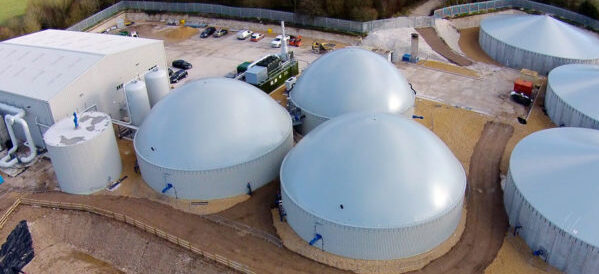

A report from Guidehouse has said that Europe – that includes EU-27, UK, Norway and Switzerland) could generate 111 billion cubic meters (bcm) of biomethane by 2040. This estimate surpasses 30% of the EU’s gas consumption in 2022.
Biomethane, as a renewable and locally sourced gas, is gaining traction, with the industry swiftly mobilizing to hasten the decarbonization of various sectors within the European economy.
The Guidehouse report estimates that by 2040, Europe’s biomethane potential will encompass 75 bcm from anaerobic digestion (AD) and 37 bcm from thermal gasification. The leading producers in 2040 are projected to be Germany, France, Spain, Italy, Poland, and the UK.
Furthermore, the report offers a targeted update of the 2022 Gas for Climate study, utilizing the same assumptions and methodology while incorporating the latest data and insights to reassess potential estimates for 2030 and 2050. The most recent analysis suggests that Europe could produce up to 44 bcm of biomethane by 2030 and 165 bcm by 2050.
In addition to assessing the biomethane potential, the study delves into novel feedstocks and technologies capable of bolstering biomethane production. Realizing these potentials will necessitate a supportive and stable policy environment that instills confidence across the biomethane value chain. However, with the right conditions in place, significant potential awaits unlocking.
Biogases are poised to play a pivotal role in the European Union’s (EU) endeavor to achieve a net-zero future by 2050. Through the REPowerEU plan, the European Commission has outlined an objective to annually produce 35 bcm of biomethane in the EU by 2030, marking a ten-fold increase from current levels.
The focus of Europe is now shifting to 2040 as a mid-term milestone on the path to climate neutrality. The European Commission is advocating for a 90% reduction in greenhouse gas (GHG) emissions by 2040, relative to 1990 levels. This necessitates further efforts to decarbonize across all sectors of the economy. Even in a scenario with accelerated electrification, there will remain a significant demand for gas, which can progressively be substituted by renewable gases like biomethane.
1. The mandate for blending Compressed Biogas (CBG) with natural gas has come into effect…
Andhra Pradesh is striving towards greening its energy sector with quite some speed. In a…
With an objective to bolster India’s green energy goals, a Tripartite Agreement has been signed…
The Union MNRE Minister Pralhad Joshi launched the Green Hydrogen Certification Scheme of India (GHCI)…
India’s energy conglomerate Bharat Petroleum Corporation Limited (BPCL) has commissioned a 5MW green hydrogen plant…
In a historical development, the European Space Agency (ESA) has successfully launched its pioneering ‘Biomass’…